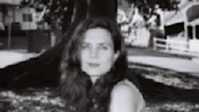A CPTRG research event

Afternoon Seminar: “Discourse, the subject and identity in International Relations”
Date/Time: Wednesday, 6 October 2010, 1:30-2:30pm
Location: Royal Holloway, Egham Campus, Room FW101
Abstract: The concept of identity has attracted increasing attention in International Relations (IR). Yet what does it mean to study the ‘selves’ of international actors?’ The two pieces explored in today’s reading group propose that the discourse approach offers a more theoretically parsimonious and empirically grounded way of studying identity in IR than approaches developed in the wake of both constructivism and the broader ‘psychological turn’. In the second piece for instance, Dr. Epstein starts with a critique of the discipline’s understanding of the ‘self’ uncritically borrowed from psychology. Jacques Lacan’s ‘speaking subject’ offers instead a non-essentialist basis for theorizing about identity that has been largely overlooked. This insight allows us to steer clear of the field’s fallacy of composition, which has been perpetuated by the assumption that what applies to individuals applies to states as well. This is illustrated empirically with regards to the international politics of whaling.
Participants must have read the following two pieces and be ready to discuss them:
1. The introduction to Charlotte’s book, The Power of Words in International Relations.
2. Charlotte’s latest piece in European Journal of International Relations, entitled ‘Who speaks? Discourse, the subject and identity in international relations’.
Evening Seminar: "When the Pre-modern is Post-Modern. Hobbes, Lacan and the Making of the International System"
Date/Time: Wednesday, 6 October 2010, 5:00-6:30pm
Location: Royal Holloway, Egham Campus, Room FW101
Abstract: From Hans Morgenthau to Kenneth Waltz, via Carl Schmitt, the writings of Thomas Hobbes have played a key role in shaping Realist understandings of the international system. Less appraised are the uncanny similarities that exist between his political ontology and that of Jacques Lacan. In this paper I return to this fount of Realism to I show how these two worlds – that of the early modern thinker of the post-modern psychoanalyst – reveal ontologies of dependence and relationality. Specifically, I show that the figure of the sovereign, the linchpin of Hobbes’ political order, represents none other than Lacan’s Other. The implications are significant, as, in the light of these resemblances, the conclusions realists have drawn with regards to the possibilities of states’ acting in that system appear a misreading of Hobbes. Underpinning Hobbes’s thought is in fact a sense of the fundamental dependence between the self and the Other that rule out the type of survivalist behavior that they describe and prescribe.
Dr. Charlotte Epstein is a senior lecturer in International Relations in the Department of Government and International Relations, University of Sydney. Homepage:https://www.sydney.edu.au/arts/about/our-people/academic-staff/charlotte-epstein.html
* This event was sponsored by Royal Holloway's Humanities and Arts Research Centre (now Humanities and Arts Research Institute [HARI])




















